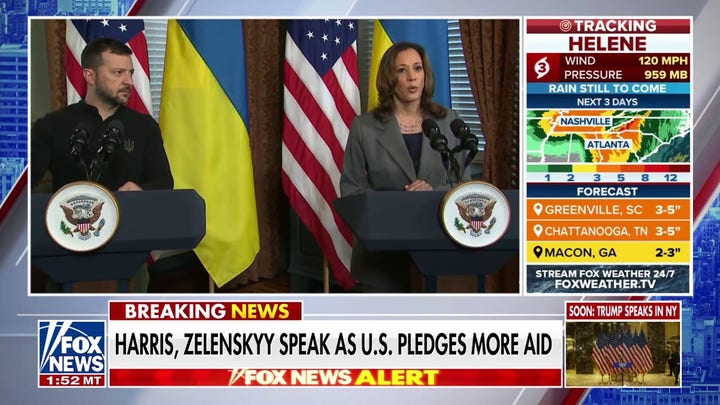With less than six weeks before the election, Vice President Kamala Harris has been striking a populist tone, especially when it comes to taking on Big Pharma in her stump speeches. At a recent campaign rally, she touted her tie-breaking vote to pass the Inflation Reduction Act, which granted Medicare the ability ‘to go toe-to-toe with Big Pharma and negotiate lower drug prices.’
And to great fanfare, just before the Democratic National Convention, the White House announced that the first round of those drug price negotiations would save taxpayers a cool $6 billion – a major win for the American taxpayer.
Yet at this very moment, the Biden-Harris administration is quietly pushing for a multi-billion-dollar bailout of one of the nation’s largest and wealthiest drug companies – a bailout that would be funded by those same taxpayers.
The proposed bailout revolves around a patent infringement lawsuit. Arbutus and Genevant Sciences, two small biotech companies, allege that Moderna stole their patented lipid nanoparticle technology, which proved critical in developing Moderna’s mRNA vaccine for COVID-19.
Though the case is yet to be decided, the U.S. Patent and Trademark Office and Federal Circuit Court of Appeals have already determined Arbutus’ patents to be valid, despite Moderna’s attempt to invalidate the patents before the pandemic. Given the stakes of this case, court-ordered damages could reach $3 billion, according to some analysts.
While this may appear to many as an obscure issue of corporations battling it out over patent infringement, there are serious ramifications for taxpayers here as well.
In a rare statement of interest filing, Department of Justice officials recently argued that due to an obscure federal law dating back to World War I, Moderna is excused from any patent infringement that may have occurred during Operation Warp Speed, the historic federal campaign to support COVID-19 vaccine development. If that’s the case, the lion’s share of the financial penalty for Moderna’s potential wrongdoing will fall on U.S. taxpayers.
The law, known as Section 1498, essentially states that the government will compensate an inventor for patent infringement if the technology in question is ‘used or manufactured by or for the United States.’
In times of great national need, the government may decide they need niche technology at a scale that the original patent-holding manufacturer can’t provide. The law absolves the larger manufacturer from having to worry about licensing the patent from the original patent-holder or deal with the patent-holder taking them to court for infringement.
Put more simply, Section 1498 is similar to eminent domain, but rather than letting the government seize private land, it allows the government to seize patented inventions in emergencies and retroactively compensate the patent holders.
Here’s where the DOJ’s argument falls short, as Moderna’s infringement clearly should not be covered by Section 1498. The government never asked them to infringe on the intellectual property of anyone else and never authorized widespread production of Moderna’s COVID-19 vaccine by other companies due to manufacturing capacity issues.
And critically, the vaccines in question weren’t used exclusively or even primarily by the U.S. government – meaning military service members or other federal employees – but were instead distributed to regular Americans like you and me.
Yet at this very moment, the Biden-Harris administration is quietly pushing for a multi-billion-dollar bailout of one of the nation’s largest and wealthiest drug companies – a bailout that would be funded by those same taxpayers.
‘By or for’ government use has always been understood to mean that the U.S. government is the end user of the product in question – for instance, a patented technology that’s appropriated for U.S. military use – not that it’s merely a purchaser. Objectively, the U.S. government was merely one buyer among many purchasers of the vaccines – including many foreign governments and other foreign state-owned companies.
If the court overseeing the case accepts the DOJ’s interpretation of Section 1498, it will set a precedent that companies that merely sell to the government, among other customers, are immune from patent infringement lawsuits. That result would be disastrous for our economy and a boon to wrongdoers.
Patents encourage innovation and risk-taking by enabling anyone with a novel idea to turn it into a real-world product – without bigger, entrenched rivals stealing it. Allowing huge corporations to essentially steal patented technology from small upstarts is the opposite of standing up for the little guy. It’d greatly disincentivize investments in research and development.
Harris has a strong history of standing up for the ‘little guy’ going back to her early years as a prosecutor and San Francisco District attorney. The vice president should continue that legacy and make clear that in a Harris administration, large corporations will be held accountable if found responsible – a winning message in the final campaign stretch.
